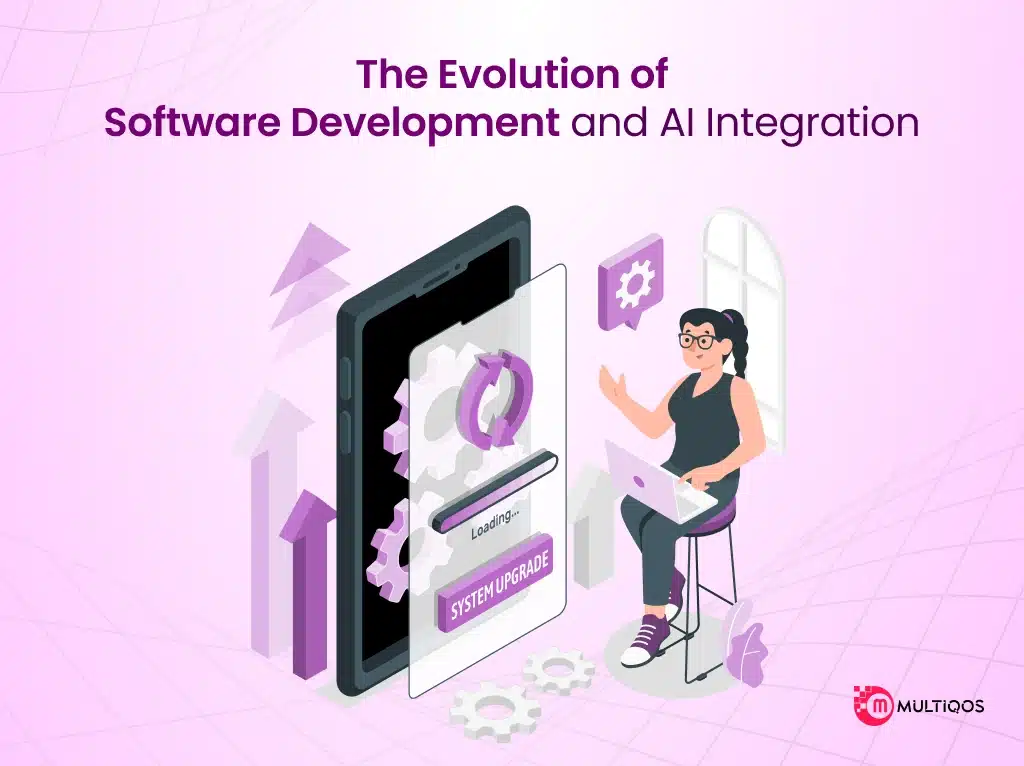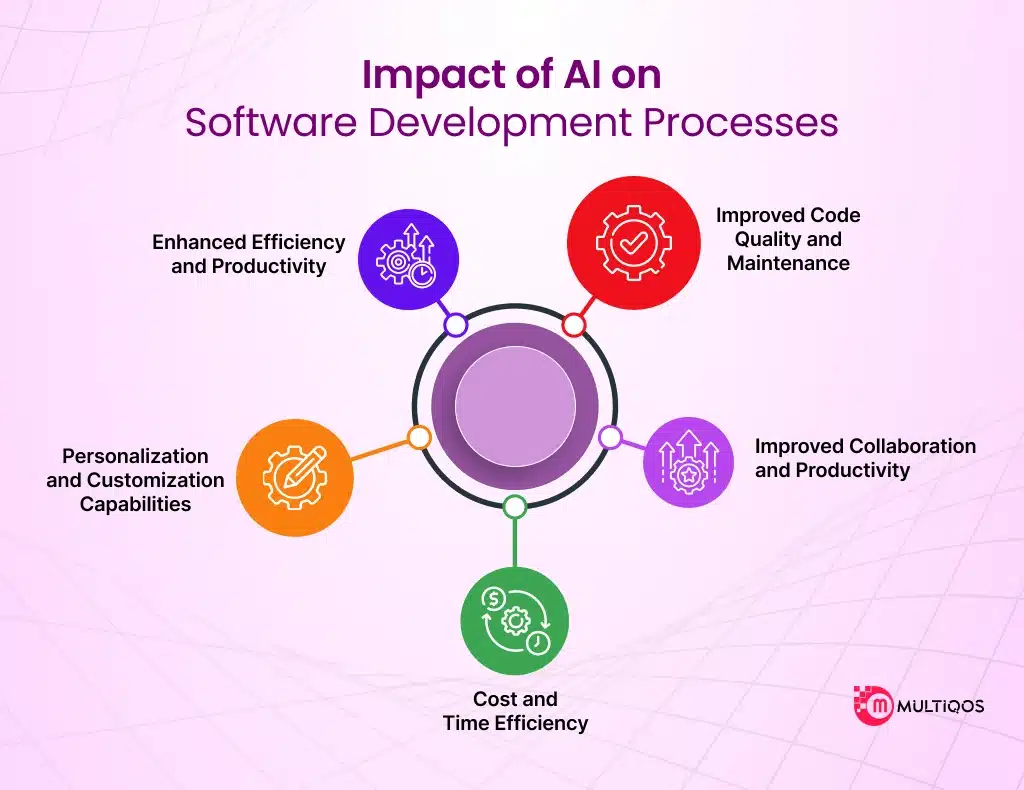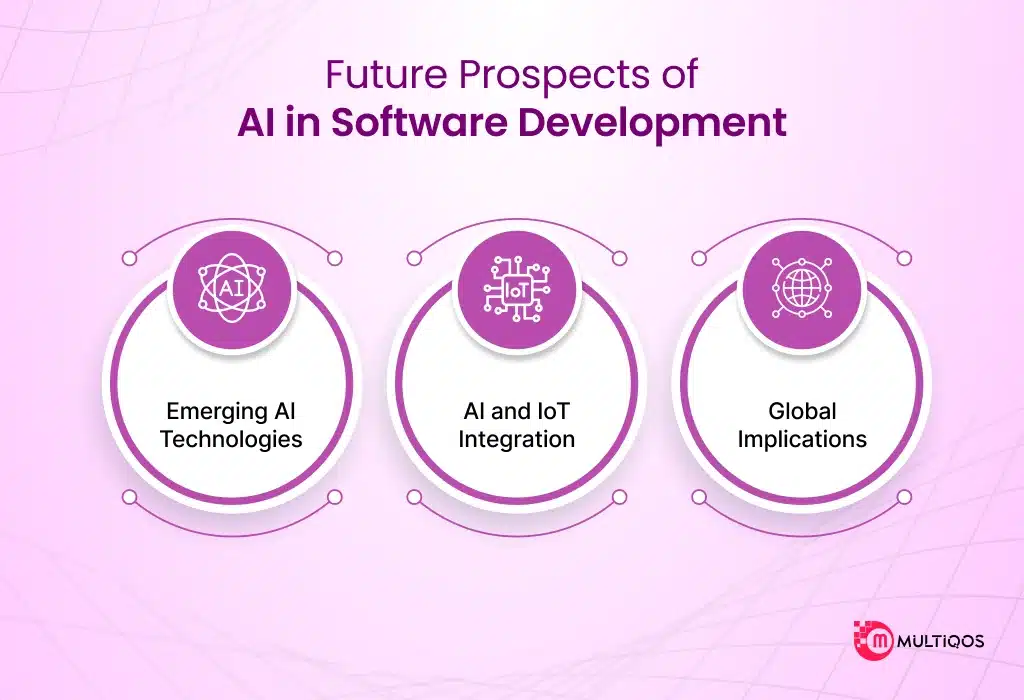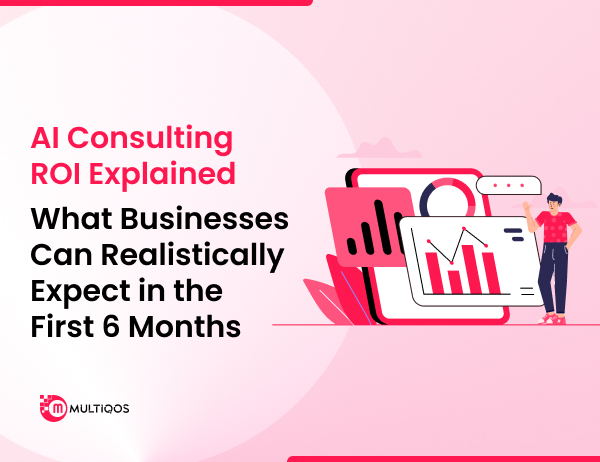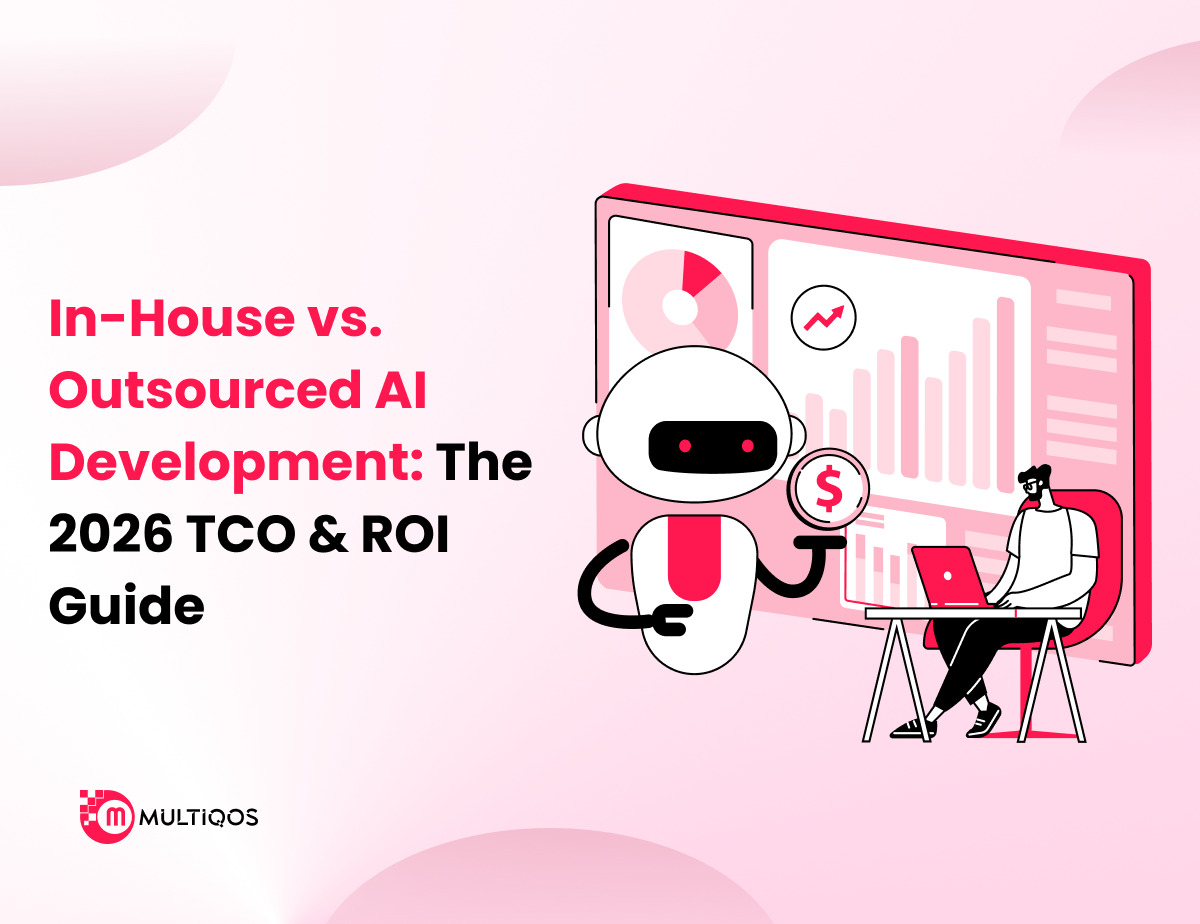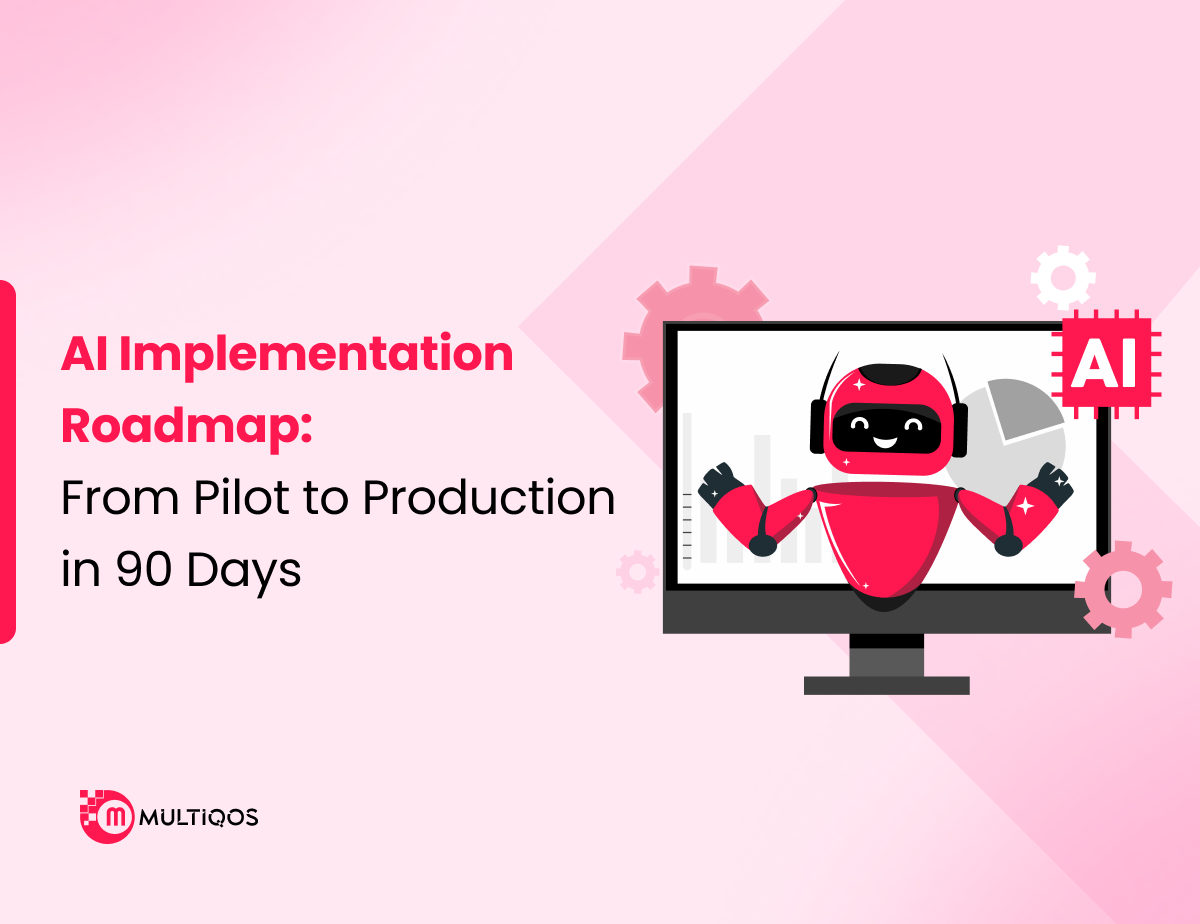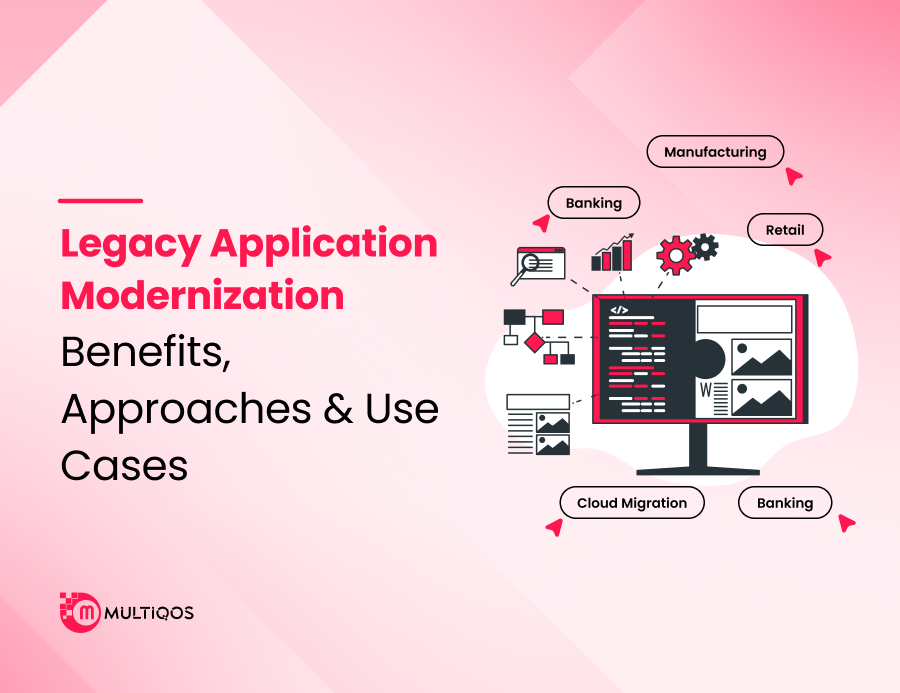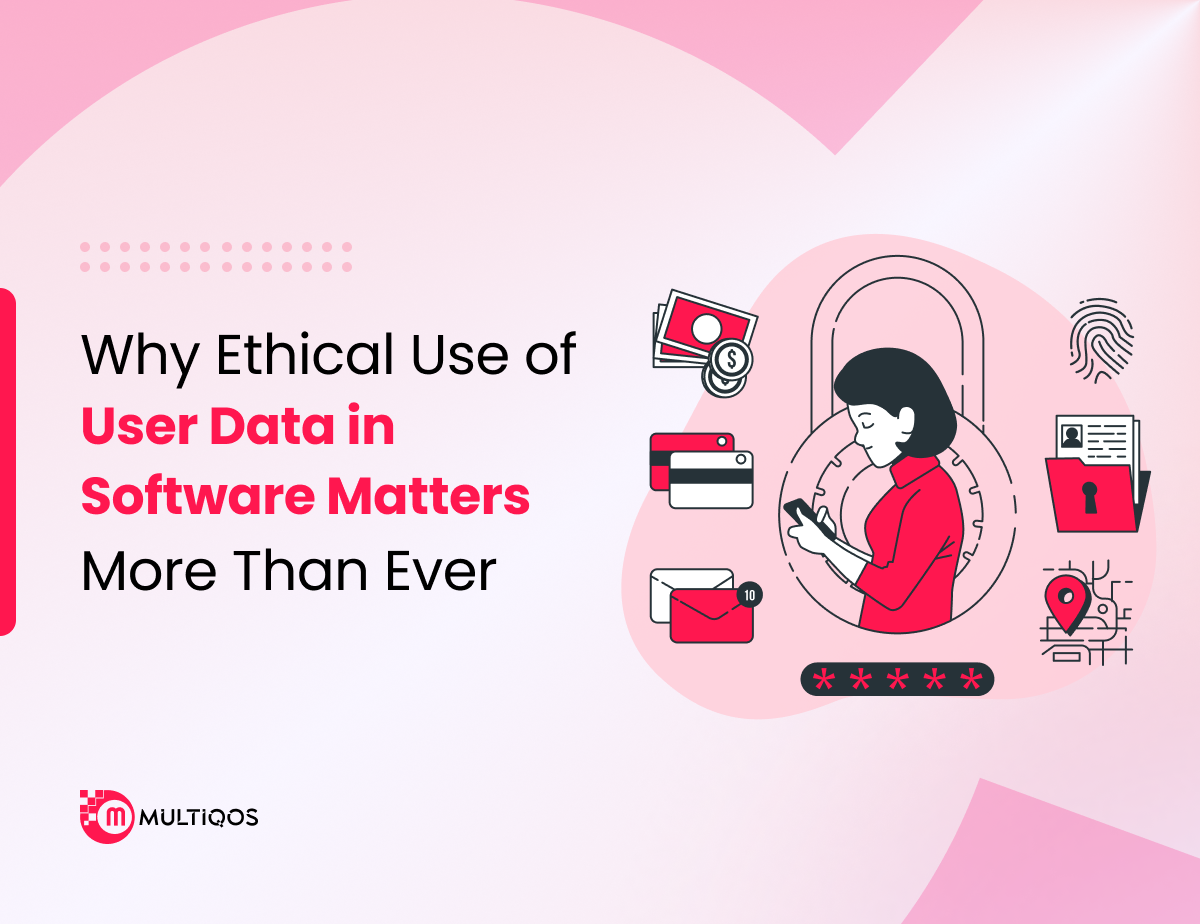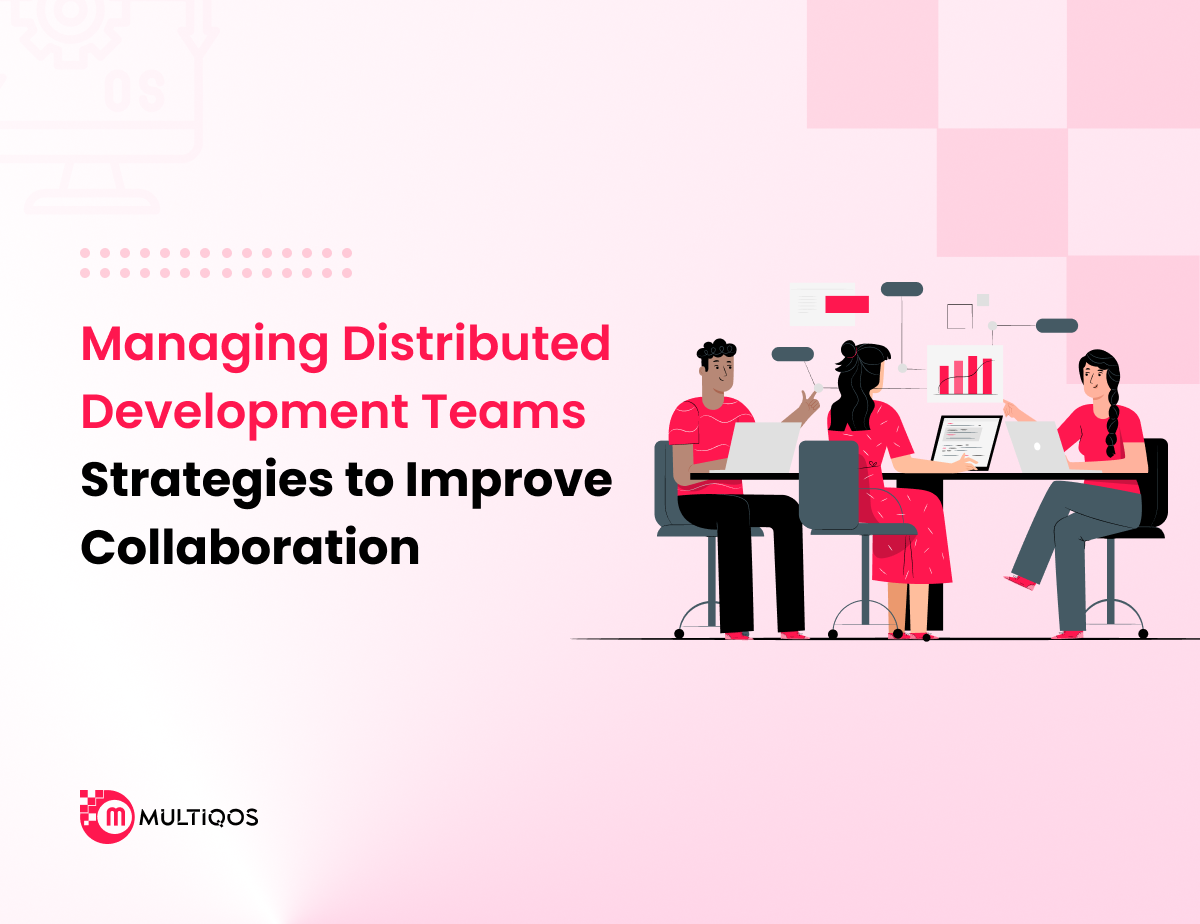AI Era and Its Impact on Custom Software Development Solutions
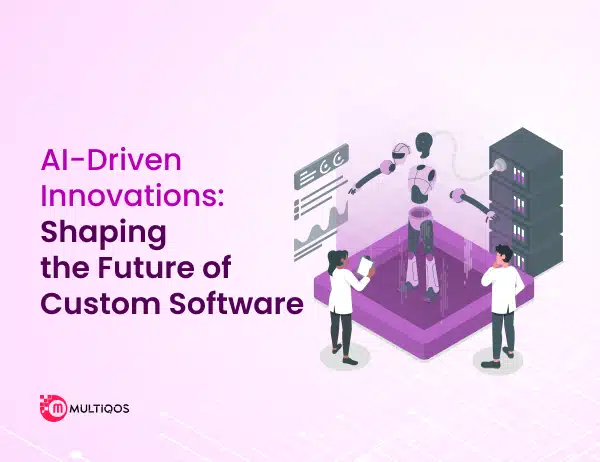
Introduction
In today’s fiercely growing technological space, we can witness the emergence of the “AI Era,” in which the concept of Artificial Intelligence is no longer futuristic but a reality that facilitates the digital transformation of industries.
From the applications of machine learning and natural language processing to automation and other aspects of deep understanding, businesses are being revolutionized and are increasingly responding to those revolutions. The role of AI in an enterprise must be considered in the present digital age as it plays a critical role in the current processes.
Alongside these technologies, custom software development has become incredibly valuable. Tailored and innovative software solutions are essential for businesses looking to fulfill their unique requirements, streamline processes, and enhance customer satisfaction. Unlike off-the-shelf software, custom solutions are created based on the company’s objectives, making sure that each integrated functionality supports its success.
The AI Era is now unfolding and combining with custom software development to reveal exciting innovation opportunities. These AI technologies are not only improving current software but also driving the development of more smarter and adaptive solutions.
In this blog, we will learn how AI is augmenting and improving custom software development so that companies can benefit from advanced solutions for their issues and requirements. The role of an AI development company in this process is significant, as such companies assist businesses in advancing their potential AI-driven custom software solutions for the future.
The Evolution of Software Development and AI Integration
Software development has grown through the years from initial “intelligent programming”, where programmers wrote code manually without using any tools or automation. This was a slow method, and it was especially important to possess substantial technical understanding to perform this process.
With the advancement in technology, newer software tools driven by AI like Integrated Development Environments (IDEs) with in-built facilities of syntax highlighting and error detection during coding came into light. Then code analyzers further enhanced efficiency for bug identification and code optimization.
In the 2010s the low-code and no-code platforms appeared and changed the concept of software development as users were able to create apps in the simplest ways using visual interface. It makes software creation easier, though many of these platforms integrate AI to auto-generate code or provide an intelligent suggestion.
Current Landscape of AI in Software Development
1. Integration of AI in Software Development
Automated Code Generation: Various templates are now created by AI across different development axes which can help developers by creating code snippets, boilerplate code, or even a particular block of functionality with regard to the user needs. Some tools use ML and NLP models to decode user intentions and translate those into the correct code.
Bug Detection and Debugging: AI systems are much better than the traditional methods of identifying bugs in a given application. Computer programs study past bug reports to estimate future mistakes and their solutions while preventing human teams, thus considerably shortening development cycles and increasing software quality.
Predictive Analytics: When applied to a project, AI can estimate possible problem areas, estimate the consequences of making particular decisions, and even suggest what ought to be done initially to prevent the problems from arising at all. This is proactive, for the most part, allowing for a less complicated development process.
2. Tools and Platforms
AI-Powered IDEs (Integrated Development Environments): Interactive Development Environments with AI incorporated help the developers by providing code suggestions, error checks, and even suggestions to improve the code performance. These intelligent tools give ongoing feedback as well as enable a reduced development cycle.
Machine Learning Models for Development: Frameworks such as TensorFlow, PyTorch, Keras, and other frameworks for ML let developers embed powerful models into their applications. Other examples where AI is useful include where there is a need to decide on which feature to include or which development strategy is likely to be fruitful.
Impact of AI on Software Development Processes
As we all know, the AI era has fundamentally unfolded the software development processes, rendering countless advantages for development teams and enterprises:
1. Enhanced Efficiency and Productivity
AI helps to save time by automating routine and tedious tasks like coding and testing and allows one to focus more on the creative work of a developer. This results in increased speed of delivery and more project turnover on the part of a design studio.
2. Improved Code Quality and Maintenance
AI tools can thoroughly analyze code quality and look for possible enhancements early on. This can lead to more robust and secure software development solutions. Apart from this, AI-driven bug detection tools make sure that the maintenance is quicker and less prone to human error.
3. Personalization and Customization Capabilities
This makes AI more appropriate given that it enables deeper customization of behavior. With the help of custom solutions, users will observe a growing trend towards personalization for software solutions used for e-commerce, mobile, and enterprise applications.
4. Improved Collaboration and Productivity
Through AI, project management tools are made smarter so team members can work together closely. It is used to monitor the fulfillment rate, and efficiency, and to make sure all the members have a proper understanding of the overall goal of the project. Also, communication is improved through the integration of artificial intelligence; activities that would have taken much time such as scheduling meetings and creating reports are streamlined by AI.
5. Cost and Time Efficiency
When automating some parts of the software development lifecycle, AI minimizes the need for manual labor, which results in lower costs and shorter development cycles. It also assists businesses in making accurate forecasts of project durations and allocating resources efficiently.
Case Studies: Real-world Examples of AI in Custom Software Solutions
Case Study 1: AI-Driven Web Development
Company (1): Airbnb
Challenge: Airbnb needed to automatically tag and categorize the millions of listing photos on its platform to improve search relevance. Manual tagging was impractical and inefficient.
Solution: Airbnb deployed deep learning neural networks capable of recognizing objects and scenes in images. The algorithms extract visual data like furniture, amenities, and location details from photos and match them to relevant tags and categories.
Outcome: Intelligent image recognition reduced the need for host input while enhancing the guest experience. Listings became more discoverable, leading to faster bookings and improved user satisfaction.
Company (2): Netflix
Challenge: With over 200 million subscribers, Netflix needed to improve user engagement by delivering ultra-personalized content recommendations.
Solution: Netflix developed complex machine learning algorithms that analyze user behavior, such as watch history and interactions. This data trains the system to understand individual interests and preferences, correlating genres, keywords, actors, ratings, and other attributes to identify patterns and make title suggestions.
Outcome: AI-powered personalization led to increased viewer retention, with 75% of content watched on Netflix coming from algorithmic recommendations, creating a sticky viewing experience.
Case Study 2: AI in Mobile App Development
Company (1): Healthcare Client
Challenge: A healthcare client needed a solution to help them maintain data records and acquire insights from them, customize treatment plans, and ensure proper and accessible care to patients with chronic and complex health conditions.
Solution: The client implemented AI algorithms and data analytics to collect, clean, and analyze data from sensors, medical records, and diverse sources. Specific algorithms and data analytics programs were created to offer personalized treatment plans and automate communication and collaboration among caregivers.
Outcome: The healthcare system became more efficient due to inherent automation and reduced workload. With timely and accurate diagnosis and personalized treatment plans, the application managed to enhance patient outcomes.
Company (2): Uber
Challenge: Uber needed to enhance its ride-hailing service by predicting demand and optimizing driver allocation in real-time to reduce wait times and improve customer satisfaction.
Solution: Uber implemented AI algorithms that analyze historical data, real-time traffic conditions, weather, and events to predict demand patterns. The app uses machine learning to dynamically allocate drivers to areas with high demand, ensuring efficient service.
Outcome: The AI-driven system reduced wait times significantly, improved driver utilization, and enhanced the overall user experience, leading to increased customer satisfaction and loyalty.
Future Prospects of AI in Software Development
We all are aware of the fact that AI technologies are evolving at a rapid pace, and when it comes to custom software development, it will come up with limitless possibilities, here are a few:
(1). Emerging AI Technologies
In the future, when AI’s will become more advanced, it will enhance the ability of the predictive models within software development. It could predict what may become problematic in the future when developing software or perhaps, in a business setting, more accurately determine business results.
NLP will enable developers to issue commands or requests in plain language and get code suggestions in response, no more highly technical script is needed.
(2). AI and IoT Integration
AI when integrated with IoT is expected to create smarter and interconnected systems. Embedded software solutions will experience improvement since AI enhances the flow of data, controls multiple devices, and offers a prognosis for IoT systems.
(3). Global Implications
AI tools will also contribute towards reducing the entry barriers to software development so that it can be a universal domain of operation even for those who lack deep-rooted IT experiences.
If implemented with adaptive technologies and made commonly available, will play an important role in providing the developing world with technology to increase access to custom software development and advancement.
The Bottom Line
The use of AI in custom software development has already transformed the industry and has made a significant impact on the industry. AI is gradually changing the way software is developed, streamlined, and deployed to support unique users across numerous applications.
AI is set to radically alter software development methods as we move into the new age with the help of other rapidly evolving technologies such as machine learning, natural language processing, and IoT.
In the future, the role of AI in software development will continue to grow, unwinding enormous opportunities for personalized and more efficient solutions. For businesses and developers, being able to keep up with these trends will be crucial in fully harnessing the potential of AI in delivering next-gen software.
At MultiQoS, as a leading software development company, we ensure that staying ahead of these trends is essential to providing innovative, AI-powered software solutions.
Frequently Asked Questions
AI is integrated using various tools such as AI-powered IDEs that automate tasks like predictive analytics, code generation, and bug detection, enhancing the speed of software development and the quality of the code.
It enhances the code quality by identifying issues and bugs at an initial stage, saving time and costs and allowing for more personalized user experiences.
No, it cannot replace human creativity and the domain expertise they have, rather, it complements them by automating routine and tedious tasks.
For personalized recommendations and tailored development solutions and experiences, such as health insights, fitness, etc, AI is widely used.
Get In Touch

